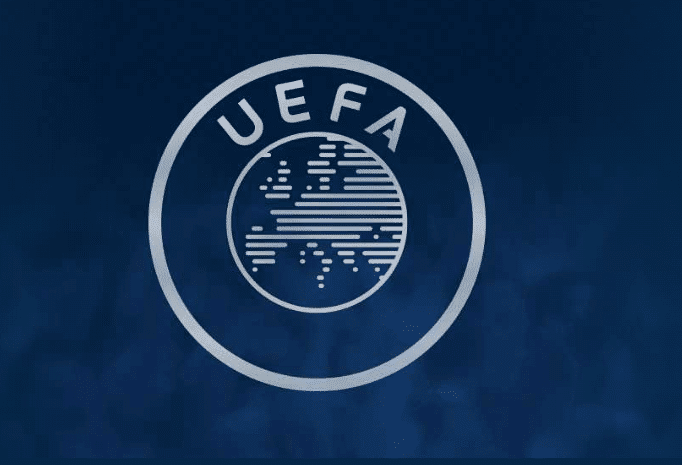Financial Rules
UEFA’s Financial Rules, once called Financial Fair Play (FFP), aim to make European football clubs stable. These rules aim to keep clubs from overspending. This will ensure fair competition and long-term sustainability. But how have these rules impacted clubs over the years? Which clubs have faced sanctions, and how do these rules compare to the Premier League’s Profit & Sustainability Rules (PSR)? Financial regulations transform football’s ecosystem. Chelsea FC faces scrutiny, exemplifying wider impacts. From transfer strategies to club operations, these rules redefine the game.
What Are UEFA’s Financial Rules?
UEFA’s Financial Rules, or Financial Fair Play, were introduced in 2011 to prevent clubs from spending more than they earn. Clubs in UEFA competitions must balance their books and spend within their means. Essentially, it’s about promoting sustainable spending to avoid financial difficulties.
Key Objectives of UEFA Financial Rules:
- Ensure financial stability and sustainability of clubs.
- Prevent clubs from accumulating unsustainable debt.
- Level the playing field by limiting the ability of wealthy club owners to fund excessive spending.
Clubs Sanctioned Under UEFA Financial Rules
Over the years, UEFA has sanctioned several high-profile clubs for breaching its financial rules. These sanctions have included fines, transfer bans, and even exclusion from European competitions. Here are some notable examples:
- Manchester City (2020): A two-year UEFA ban and a €30 million fine for overstating sponsorship revenue. This was later overturned on appeal. The fine was reduced to €10 million.
- Paris Saint-Germain (2014): They were fined €60 million (with €40 million suspended) for not meeting break-even rules. They faced squad and transfer limits.
- AC Milan (2018): Excluded from the Europa League for breaching FFP rules. They appealed and were reinstated under a settlement agreement.
- Galatasaray (2016): Banned from Europe for one season for failing to meet the break-even requirement.
- Inter Milan (2015): Fined €20 million for failing to meet financial targets, along with restrictions on their European squad.
Clubs Currently Under Investigation
UEFA continues to monitor and investigate clubs that may be breaching financial rules. Currently, several clubs are under scrutiny, including:
- Barcelona: Under investigation for potential breaches related to player salaries and sponsorship deals amidst their ongoing financial struggles.
- Juventus: Facing probes related to financial irregularities and accounting practices.
- Paris Saint-Germain: They are monitored due to high spending and sponsorship deals linked to their Qatari owners.
Chelsea’s Recent Issue with UEFA’s Financial Rules
UEFA has recently scrutinized Chelsea FC over some financial moves. They conflict with UEFA’s regulations. UEFA’s rules prohibit clubs from inflating their financials by selling assets to sister companies. Chelsea recently did this.
The Issue:
- Chelsea tried to raise money by selling assets. This included two hotels for £76.5 million to entities tied to their ownership. They effectively sold the assets to themselves.
- Chelsea’s women’s team was transferred to the club’s parent company. UEFA considers this like internal deals that inflate the club’s balance sheet without real financial gains.
UEFA’s rules on such transactions are stricter than the Premier League’s. UEFA argues that sales to sister companies are not legitimate income. So, Chelsea cannot count this money to meet UEFA’s financial rules.
Implications for Chelsea:
The difference between Premier League and UEFA rules highlights a tension. It is between domestic and European financial regulations. Chelsea’s actions are allowed by Premier League rules. But, UEFA does not recognize them. If UEFA sees them as violations of its financial rules, Chelsea could face sanctions. This could lead to penalties, like fines or bans from UEFA competitions.
How UEFA Financial Rules Compare to Premier League’s Profit & Sustainability Rules (PSR)
While UEFA’s Financial Rules focus on European competitions, the Premier League has its own set of financial regulations known as the Profit & Sustainability Rules (PSR). Here’s a comparison between the two:
| Criteria | UEFA Financial Rules | Premier League PSR |
|---|---|---|
| Objective | Ensure clubs don’t spend beyond their means | Encourage sustainable financial practices |
| Time Frame | Assessed over a three-year period | Evaluated over a rolling three-year period |
| Profit/Loss Limit | Maximum €30 million loss over 3 years | Maximum £105 million loss over 3 years |
| Sanctions | Fines, transfer bans, European exclusion | Fines, transfer bans, points deductions |
| Scope | Clubs in UEFA competitions | All clubs in the Premier League |
While both sets of rules aim to promote financial sustainability, the Premier League’s PSR allows for greater losses (£105 million vs. €30 million) but has a more domestic focus, whereas UEFA’s rules apply to clubs participating in European competitions.
UEFA’s Financial Rules have certainly played a role in reshaping how clubs manage their finances, pushing for greater accountability and sustainability. However, the rules have also faced challenges in terms of enforcement and fairness, with ongoing debates about their effectiveness. As financial landscapes evolve, both UEFA and domestic leagues like the Premier League continue to refine their approaches, striving to balance the financial health of clubs with the competitive nature of football.
The recent issues involving Chelsea highlight the complexities and conflicts that can arise between different sets of financial rules. As clubs navigate these regulations, the balance between financial innovation and compliance remains a critical aspect of modern football management.
Got any thoughts on how these rules could be improved? Let’s keep the conversation going in the comments section!
For more insights into Chelsea’s financial challenges, check out this in-depth analysis on SoccerVAR.
Additionally, read BBC Sport’s latest report on financial fair play and how clubs are adapting.


